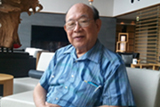
November 29, 2012 We attended 2012 NGO Study Group Review Seminor hosted by Association of African Economy and Development Japan ECA Committee. ⇒Link: The Taiwan News Japan Blog
November 19, 2012 Announced at 53rd Battery Conference about the following Subjects “How to use organic polymer to recover and extend life of lead-acid battery” “Differences of deterioration process between Lithium-ion battery and lead-Acid battery” and “Effects and characteristics of our activator for negative electrode of lead-acid battery”
October 11, 2012 Click here for the ITE Battery Seminor
September 11, 2012 Announcement of ITE Battery Seminor at Tokyo, Sendai, Nagoya and Hiroshima.
May 15, 2012 (click here for) Updated List of participants for Zero Waste Movement of lead-acid batteries.
March 25, 2012 (click here for) Updated List of participants for Zero Waste Movement of lead-acid batteries.
February 7, 2012 How to use ITE’s Organic Polymer
November 3, 2012 Announcement of start selling Batteries for forklift (our Super-K additive pre-included in the battery)
November 3, 2011 Our proposal to reduce lead-acid battery size by 50% using our Super-K additive. Same battery life and Save energy for environment.
October 20, 2011 About our “Zero Waste Movement of lead-acid batteries
Lead-acid battery is an old battery since it was invented 150 years ago,
but is still widely used all over the world. Lithium-ion battery is so popular and draws much attention in Japan today and it looks like main stream of the various batteries. However, it is expected that lead-acid battery will be used widely for another 30 to 40 years in the world.
Reason for that lies in the fact that lead-acid battery is much more economical than lithium-ion battery. And, lead-acid battery will remain the main stream of battery in 80% of the world, especially in the developing countries.
At ITE Yeager-Kozawa Battery Laboratory, we were successful in reducing the weight/size of lead-acid batteries used for trucks, buses and taxi cars by 20% to 50%,
maintaining the same battery life by use of our Super-K additive since we started our study in 1995. Also, we developed new technology with which battery life can be extended to over 8 to 10 years with our additive and with proper maintainance of the battery. Our technology is now being applied in various countries in the world.
We are determined to keep our R & D efforts and to contribute to clean environment of the world by reducing the amount of producing new lead-acid batteries with our technology.

Dr. Akiya Kozawa,
President of ITE Battery Research Institute








